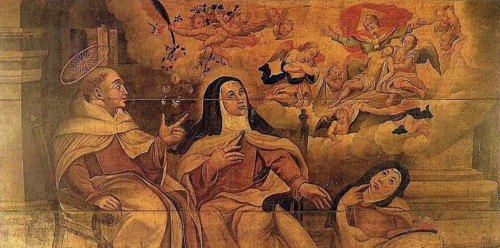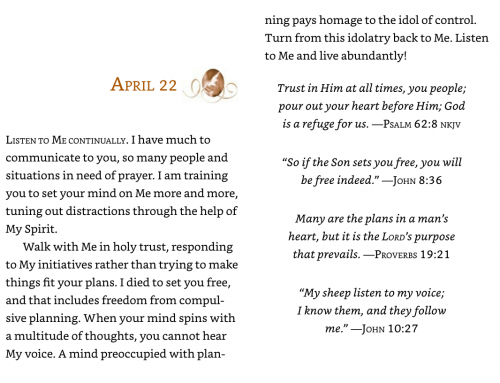
Prayer in Captivity
Wednesday, April 22, 2020
In 1567, when Teresa of Ávila was 52 and deeply involved in her attempts to reform the Carmelite Order and create the Discalced (or “barefoot”) Carmelites, she met the newly ordained John of the Cross. Though he was only 25 years old, Teresa persuaded him to join her cause. In her book St.John of the Cross: Devotions, Prayers, and Living Wisdom, spiritual teacher Mirabai Starr, who has translated many works by both John and Teresa, tells the story of John’s loyalty to their shared mission of reformation:
Juan de la Cruz was twenty-nine years old and madly in love with God. The great living saint Teresa of Ávila had recognized a rare sanctity and brilliance in this humble young friar and placed him in charge of her first reform convent [in 1572].
Then late one night [when John was thirty-five], threatened by this movement to return the order to the contemplative path embodied by the Desert Fathers and Mothers, the mainstream Carmelites whisked him away and imprisoned him in Toledo.
His cell was a tiny closet that had formerly served as a latrine. There was not enough room to lie down, and the only window was far above his head. . . .
Twice a day the friars took him out and flogged him. [Hard to imagine, isn’t it? But the church was still trapped in retributive justice, which has lasted until our time among a high percentage of Christians, because that is the way the entire world operates. –RR]
“Denounce Teresa!” they demanded. “Renounce the heresy of this so-called reform!”
But he would not betray the dream. The dream of a life of voluntary simplicity, solitude, and silence. A contemplative life based on the Gospel teachings of poverty of spirit and charity of heart. A life of stripping away rather than accumulating. Of relinquishing power and seeking nothing. Of nothing but loving friendship with the divine and loving service to [God’s] creation. . . .
As the months ground by, [John] began to fear that he had been abandoned by the Holy One. For the first time in his life, he questioned the existence of a God he could no longer feel or remember. And, as his soul dried up, he found he could no longer even conceive of this God to whom he had dedicated everything. When he tried to pray, all he encountered was a cavernous emptiness.
He cried out, “Where have you hidden, my Beloved?”
Echoing from this cry came an outpouring of love poetry to God. He committed each poem to memory and recited them all again and again until they were etched on his heart. His poems became simultaneously a call to and a response from his Beloved. . . .
At last [after nine long months], one dark night, a sympathetic guard turned the other way as the frail friar made his escape. Taking refuge among the sisters in a nearby convent, he fell into an ecstatic state [of love for God], from which he never recovered.
